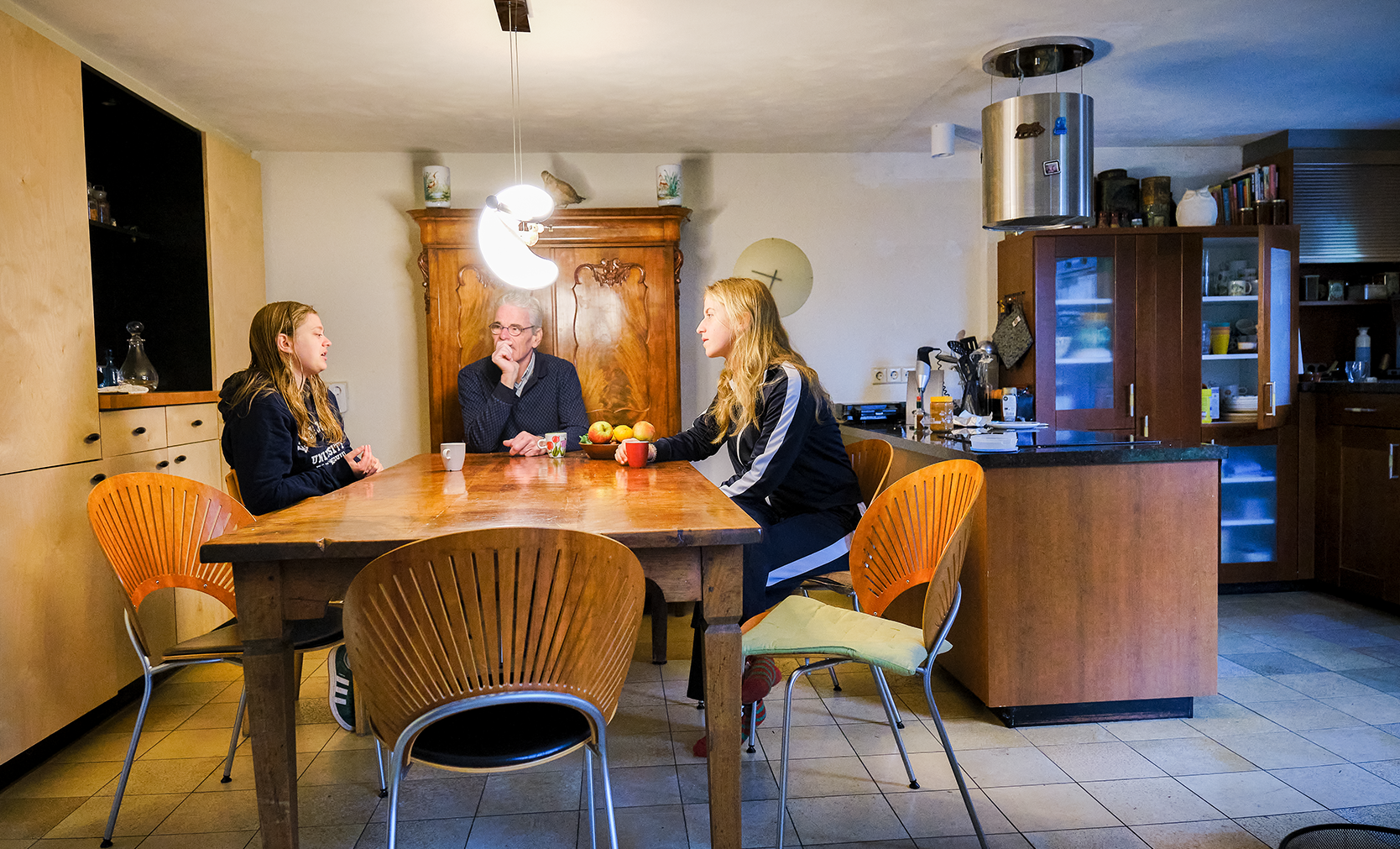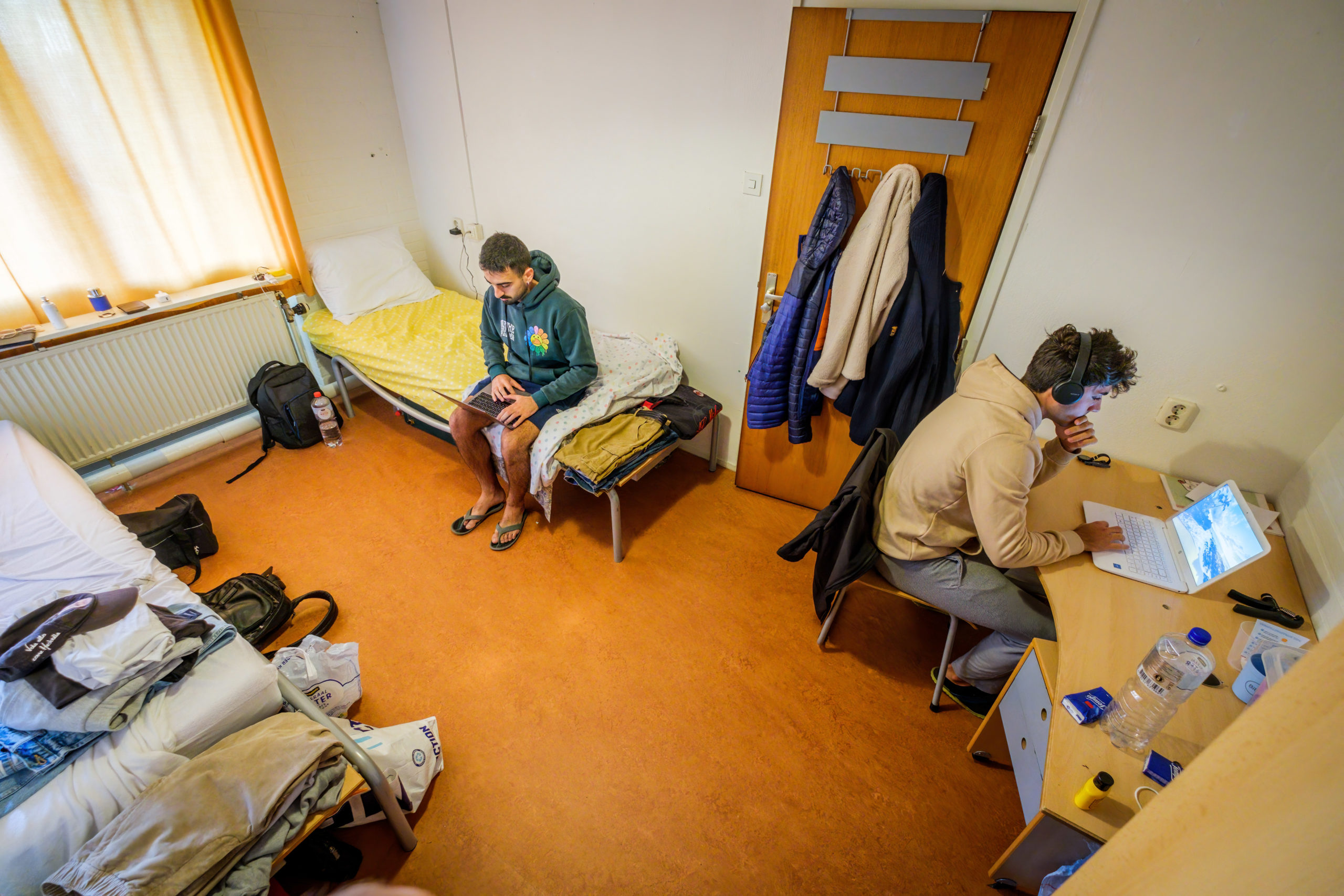European exchange students coming to Wageningen have always had to find their own rooms. That’s been difficult the last couple of summers and the university and student housing provider Idealis resorted to the emergency measure of room-sharing. ‘WUR should help exchange students more.’
Every year, WUR reserves 850 rooms for new international students with Idealis. But no rooms are reserved for European exchange students, who are expected to be able to find sublet rooms for themselves. You would think that would be easy enough, given that about 1000 WUR students go off on exchanges or internships every year, while about 400 exchange students come to Wageningen.
But in mid-August in the summer of 2022, there were suddenly 100 exchange students without a room. The same was true for 70 exchange students this summer. Through emergency measures such as room-sharing, WUR and Idealis managed to find most of them a roof over their heads, but the situation is far from ideal, says Eric de Munck, the coordinator of WUR’s Exchange Team. ‘WUR should help exchange students more. I’m not saying we don’t help – just look at how we manage to find a room for most of them in a crisis. But such last-minute operations cause the students a lot of stress. That’s got to change.’
Skipped the AID
Exchange students Simone Tedoldi (23) and Marika Moreschi (24), from Italy, know all about it: ‘I have searched on Room.nl, Kamernet and other student housing platforms since June, without success,’ says Tedoldi. ‘I expressed interest in a lot of rooms on Facebook too, but most houses are just looking for Dutch students. Often I wouldn’t even get a reply.’ Moreschi had the same experience. ‘I was surprised that it was so difficult, because Wageningen University allowed 10 students from my university to come on exchange, while most other universities offer only two or three spots.’
There are 22 of us in a house meant for 18 people
In the end, six students from her university came to Wageningen. ‘But the only one who found a room was an Iranian student who got priority because of visa requirements.’
Because he still didn’t have a room, Tedoldi skipped the AID week. ‘That was sad because I really wanted to attend it.’ He even considered cancelling his exchange altogether. ‘When the start of the academic year came closer, I was very stressed because I still didn’t have a room. I thought: what if it doesn’t happen? But I decided to keep on looking and on 31 August I chanced it and flew to the Netherlands. One day before my flight, Eric de Munck told me there was a room for me from 1 October. In September I stayed with a friend.’
Not ideal
A room was found for Moreschi at the last minute too. ‘The Exchange Office emailed us to say there were some single and double rooms available. I signed up for a shared room with a friend. It was available from 1 September.’ Happy as she is that her search is over, Moreschi feels the current situation is far from ideal. ‘The room is clearly meant for one person, so it is quite small for the two of us. But that’s fine because we are friends. The problem is that we are not the only people sharing a room on our corridor: there are 22 of us in a flat meant for maybe 18 people.
I chanced it and flew to the Netherlands
The kitchen is much too small and we’ve got to buy an extra fridge. I don’t want to complain: I’m happy to be here and I have great housemates. But it is an uncomfortable situation.’
Both of the Italians think that something’s got to change. Moreschi: ‘If you offer 10 places for exchange students, make sure there are enough rooms. Or limit the number of exchange places.’ Tedoldi: ‘I agree. If you don’t have more rooms, be stricter about admissions.’
Subletting
Like De Munck, these students favour a new policy. But you need to figure out what is going on first, says Ingrid Hijman, head of the Student Service Centre. ‘Since the pandemic, it’s been more difficult for exchange students to rent rooms. In the first year after Covid, there was a big general shortage of rooms and a lot of Dutch students started sub-renting rooms too. We thought that would be temporary, but it was difficult again last year. Maybe students prefer to sublet their rooms to a Dutch student or a friend. We’re going to look into it.’
Whatever the reason, she doesn’t see an immediate solution. ‘Reserving rooms is tricky because of the costs of empty rooms, which are higher in the case of exchange students than they are with regular international students, because not all students stay exactly six months, and more students arrive in September than in February. You could look for a room rental agency that focuses specifically on exchange students, perhaps charging a higher rent because of the costs of empty rooms. But the question is whether you will help exchange students that way.’ Admitting fewer exchange students is not an option either, says Hijman. ‘Fewer incoming students means fewer outgoing students too, and we have more outgoing than incoming exchange students.’
‘It seems more logical to make sure that exchange students can get sublets,’ Hijman concludes. ‘Hopefully we can steer things in that direction a bit more.’




